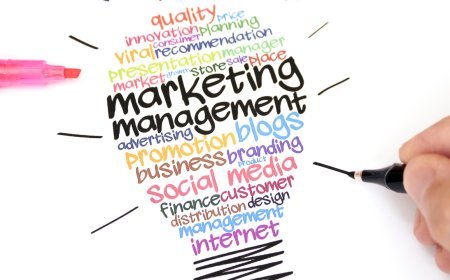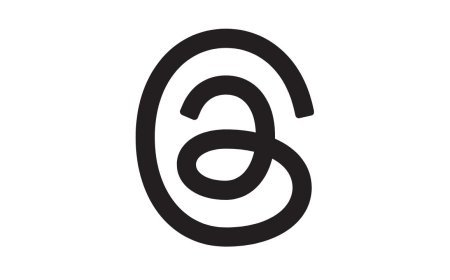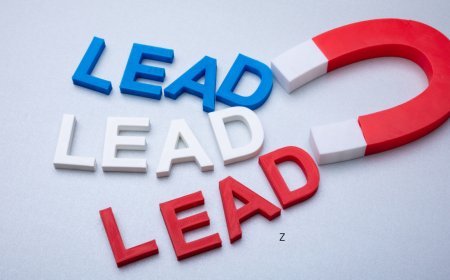How and Why Marketers Are Using AI-Generated Content in 2025
AI-generated content is revolutionizing marketing by boosting efficiency, enhancing personalization, and scaling content production. This article explores how marketers leverage AI for tasks like content creation, SEO optimization, and audience engagement, while addressing challenges like quality control and ethical concerns. Learn practical strategies and real-world examples to integrate AI into your marketing efforts effectively.

In 2025, artificial intelligence (AI) has become a cornerstone of modern marketing, transforming how brands create, optimize, and distribute content. According to HubSpot’s 2025 State of AI Marketing Report, approximately two-thirds of marketers globally use AI in their workflows, with the U.S. maintaining steady adoption rates. From crafting compelling blog posts to producing personalized email campaigns, AI-generated content is reshaping the marketing landscape. This article dives into how and why marketers are embracing AI, backed by data, real-world examples, and actionable tips to stay ahead in this AI-driven era.
Why Marketers Are Using AI-Generated Content
AI offers unparalleled benefits that make it a game-changer for marketers. Here’s why it’s gaining traction:
1. Efficiency and Scalability
AI significantly reduces the time and resources needed for content creation. Tools like ChatGPT, Jasper AI, and Copy.ai enable marketers to produce high volumes of content—such as blog posts, social media updates, and email drafts—in minutes. For instance, HubSpot’s survey reveals that 55% of marketers cite time savings as their primary reason for using AI, allowing teams to focus on strategic and creative tasks. Companies like Bloomreach have reported a 113% increase in blog output by integrating AI tools, demonstrating the scalability AI brings to content production.
2. Cost-Effectiveness
By automating repetitive tasks, AI minimizes the need for large creative teams, leading to significant cost savings. According to a 2024 survey by the American Marketing Association (AMA), 34% of marketers highlight cost-effectiveness as a key benefit of AI. Startups and small businesses, in particular, leverage AI to compete with larger brands without inflating budgets. For example, Cosabella, a luxury lingerie brand, used an AI system named Albert to achieve a 50% improvement in return on ad spend (ROAS), showcasing AI’s financial impact.
3. Hyper-Personalization
AI’s ability to analyze vast datasets enables hyper-personalized content that resonates with individual consumers. Tools like Salesforce’s Einstein AI help brands like Formula 1® tailor email content and digital ads based on fan behavior, resulting in a 22% increase in click-through rates. Similarly, HubSpot’s demand generation team used AI to deliver personalized content recommendations, enhancing customer engagement by crafting messages that feel uniquely relevant.
4. SEO Optimization and Research
AI streamlines SEO workflows by identifying trending keywords, generating optimized content, and analyzing performance metrics. Wyndly, a telehealth provider, used AirOps to transform video content into SEO-optimized articles, increasing organic traffic by 20x. AI tools like Surfer SEO and MarketMuse help marketers create content that ranks higher on search engines, driving traffic and conversions. According to Ahrefs, companies using AI publish 42% more content monthly (17 articles vs. 12 for non-AI users), amplifying their online visibility.
5. Creative Ideation and Brainstorming
AI serves as a powerful collaborator for brainstorming ideas and generating content outlines. The AMA survey found that 25% of marketers use AI for ideation, crafting creative prompts and campaign angles. For example, marketers at Zilliondesigns reported that AI tools like ChatGPT-Plus reduced brainstorming time by 30%, enabling faster content planning and execution.
How Marketers Are Using AI-Generated Content
Marketers are integrating AI across various content types and workflows to maximize impact. Here are the top applications:
1. Email and Newsletter Campaigns
AI enhances email marketing by optimizing send times, generating compelling subject lines, and enabling A/B testing. According to EngageCoders, 46% of marketers use AI to craft emails, with tools like Phrasee boosting open rates by 24% for brands like Novo Nordisk. AI analyzes recipient behavior to recommend optimal send times, ensuring higher engagement. For instance, Dell leverages AI-powered segmentation to create targeted email campaigns, improving click-through and conversion rates.
2. Social Media Content
Social media demands consistent, engaging content, and AI simplifies this process. Tools like Copy.ai and Canva’s AI features help marketers generate catchy headlines, captions, and visuals tailored to specific platforms. EngageCoders reports that 46% of marketers use AI for both text-based and video/audio social media posts. Chipotle, for example, used AI to monitor customer sentiment on social platforms, adapting messaging to align with emerging trends and boosting engagement.
3. Long-Form Content (Blogs and Articles)
AI is a game-changer for creating blog posts and articles. Tools like Jasper AI and Writesonic assist with topic ideation, outlining, and drafting, with 46% of marketers relying on AI for long-form content, per EngageCoders. Wyndly’s use of AirOps to convert video content into SEO-optimized articles highlights AI’s ability to streamline long-form content production while maintaining quality. Marketers also use AI to optimize blogs for search engines, incorporating trending keywords and improving readability.
4. Visual and Video Content
AI-powered tools like Midjourney, DALL·E, and Creatify enable marketers to create professional-grade visuals and videos without extensive resources. Zumper, a rental platform, used Creatify to produce 300 listing videos in a quarter, saving $20,000 monthly in production costs. HubSpot’s survey notes that 38% of marketers use AI for media content creation, including graphics, animations, and videos, which are increasingly vital for social media and ad campaigns.
5. Ad Copy and Product Descriptions
AI excels at crafting compelling ad copy and product descriptions. JP Morgan Chase partnered with Persado to achieve a 450% increase in ad click-through rates using AI-generated copy. Similarly, AI tools help marketers create benefit-focused product descriptions that resonate with target audiences. By analyzing performance data, AI ensures ad copy is optimized for clicks and conversions, as seen in ContextGPT’s 90% reduction in cost per acquisition for a meal delivery brand.
Challenges of AI-Generated Content
While AI offers immense potential, it comes with challenges that marketers must navigate:
1. Quality and Authenticity Concerns
AI-generated content can sometimes lack nuance or emotional depth, appearing robotic or generic. HubSpot’s survey reveals that 43% of marketers worry about AI producing inaccurate information, while 34% cite bias concerns. Marketers like Alexe Cunningham from HubSpot emphasize the need to review AI outputs, stating, “AI is a jump start, but we always check our work.” Human oversight is crucial to ensure content aligns with brand voice and maintains authenticity.
2. Ethical and Privacy Issues
AI’s reliance on large datasets raises ethical concerns, including data privacy and copyright infringement. Lawsuits against AI companies for scraping private data or using copyrighted material highlight these risks. Regulations like the EU’s AI Act and California’s CCPA aim to address these issues, but marketers must verify content originality and comply with data privacy laws to maintain trust.
3. Overdependence on Technology
Excessive reliance on AI can erode critical thinking and creativity. An MIT study found that overusing AI for writing tasks reduced brain engagement, with users becoming overly dependent on AI outputs. Marketers must balance AI use with human creativity, using tools for drafting and optimization while adding personal insights and storytelling to maintain authenticity.
Best Practices for Using AI-Generated Content
To maximize AI’s benefits while mitigating risks, marketers should follow these strategies:
1. Treat AI as a Collaborator
Use AI for tasks like ideation, drafting, and data analysis, but refine outputs with human creativity. For example, start with AI-generated outlines, then add unique insights and brand-specific storytelling to ensure authenticity.
2. Maintain Brand Voice
Review AI-generated content to align with your brand’s tone and values. Tools like Jasper AI can be trained on brand guidelines to produce more consistent outputs, but human edits are essential for coherence.
3. Verify Accuracy and Originality
Use plagiarism checkers and fact-checking tools to ensure AI content is original and accurate. This mitigates legal risks and maintains credibility with audiences.
4. Leverage AI for Personalization
Harness AI’s data analysis capabilities to deliver tailored content. Tools like Salesforce and HubSpot enable marketers to create personalized experiences that boost engagement and loyalty.
5. Stay Ethical and Compliant
Adhere to data privacy regulations and ethical guidelines. Partner with platforms like Edvido to connect with agencies that specialize in ethical AI integration, ensuring compliance and trust.
Real-World Examples
-
JP Morgan Chase: Achieved a 450% increase in ad click-through rates using Persado’s AI-powered copywriting.
-
Wyndly: Boosted organic traffic 20x by converting video content into SEO-optimized articles with AirOps.
-
Formula 1®: Improved click-through rates by 22% through Salesforce’s AI-driven personalization.
-
Zumper: Saved $20,000 monthly by producing 300 AI-generated listing videos with Creatify.
-
Cosabella: Enhanced ROAS by 50% using Albert for digital marketing optimization.
The Future of AI in Content Marketing
As AI technology evolves, its role in marketing will expand. McKinsey predicts that generative AI could add $2.6 to $4.4 trillion annually to the global economy, with marketing being a key beneficiary. Advances in models like GPT-4 and Claude 3.5 will enhance content quality, while AI agents and tools like the Model Context Protocol (MCP) will enable seamless collaboration between AI systems. However, the most successful marketers will blend AI efficiency with human creativity, ensuring content remains authentic and impactful.
Conclusion
AI-generated content is transforming marketing by enabling efficiency, personalization, and scalability. By leveraging tools like ChatGPT, Jasper AI, and Salesforce, marketers can produce high-quality content, optimize SEO, and engage audiences like never before. However, challenges like quality control, ethical concerns, and overdependence require careful navigation. By treating AI as a collaborator, maintaining brand voice, and adhering to ethical standards, marketers can harness AI’s full potential to drive results in 2025 and beyond. Ready to integrate AI into your content strategy? Explore platforms like Edvido to connect with expert agencies and stay ahead of the curve.
Sources
-
HubSpot’s 2025 State of AI Marketing Report
-
American Marketing Association and Lightricks Survey, September 2024
-
Ahrefs: The State of AI in Content Marketing
-
DesignRush: AI in Digital Marketing, 2025
-
ContentMarketingFactory: 10 Brands Using AI in Content Marketing
What's Your Reaction?
 Like
0
Like
0
 Dislike
0
Dislike
0
 Love
0
Love
0
 Funny
0
Funny
0
 Angry
0
Angry
0
 Sad
0
Sad
0
 Wow
0
Wow
0








